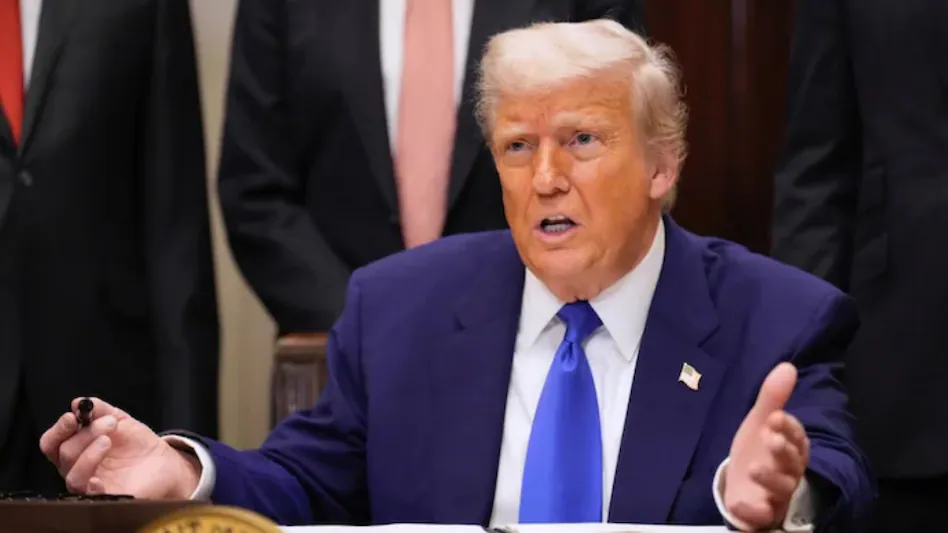In a chilling display of arrogance and desperation, Pakistan’s Chief of Army Staff, Field Marshal Asim Munir, threatened to “take down half the world” if India posed an existential threat to Pakistan. Speaking during his recent visit to the United States, Munir specifically warned that if India proceeds with constructing a dam on the Indus River, Pakistan would retaliate by launching ten missiles.
However, these are not the words of a nation confident in its future. They are the loud, panicked outbursts of an entrenched military elite whose survival hinges on maintaining India as its eternal enemy.
A Country Hijacked by Its Military Elite
For decades, Pakistan has been under the suffocating grip of its military. A staggering 32 of the country’s 77 years of independence have been spent under direct military rule. The history of Pakistani politics is one of military coups and unelected dictatorships, with no Prime Minister ever completing a full term, as the country’s rulers have been generals with no democratic mandate.
The Pakistan Army has transformed itself into a massive, profit-driven entity that controls vast parts of the country’s resources and wealth. The military owns approximately 12% of Pakistan’s land, while operating a sprawling, multi-billion-dollar business empire that includes the Fauji Foundation, Army Welfare Trust (AWT), and Defence Housing Authority (DHA). This military-industrial complex doesn’t just control national security but also dominates the country’s foreign policy, nuclear policy, internal security, and even its economy.
This shadow state, led by an unelected military elite, is built on the back of taxpayers’ money, yet it operates in secrecy and with impunity. It doesn’t have to answer to the people, and it’s only answerable to itself.
The Business of War and Occupation
The Pakistani Army operates a range of enterprises, including banks, hospitals, cement factories, and housing societies. The army is so intertwined with Pakistan’s economic structure that its reach extends far beyond the military. Retired generals are routinely rewarded with vast tracts of land and top corporate jobs, further entrenching the military’s hold on the country.
In 2007, the worth of the Pakistan Army was four times the total amount of foreign direct investment (FDI) Pakistan received that year. Today, the army employs around 3 million people and controls nearly 10% of Pakistan’s GDP. Despite the nation’s financial struggles, the military elite remains insulated from the economic turmoil, continuing to build empires abroad. While ordinary Pakistanis struggle to put food on the table, generals buy luxury properties in London and build offshore fortunes.
Luxury for Generals, Poverty for the People
As nearly half the population lives below the poverty line, with inflation and unemployment at record highs. Public services, such as healthcare and education, remain woefully underfunded. Despite this, the 2025-26 defence budget is projected to reach a staggering PKR 2.55 trillion ($9 billion), with a 20% increase in military spending, the largest hike in decades.
This prioritisation of military spending comes at the cost of the most basic needs of the people. The country’s debt exceeds $274 billion, and foreign reserves are so low that they barely cover a month’s worth of imports. And yet, the military, whose generals live lavishly, continues to demand more, all in the name of “national security.”
The Corruption Trail
The military’s stranglehold on Pakistan isn’t just economic; it is also deeply corrupt. High-ranking officials have been linked to offshore wealth and dubious business dealings. For example:
- Lt Gen (R) Shafaat Ullah Shah: His wife owns a $1.2 million apartment in London through an offshore shell company.
- Maj Gen Nusrat Naeem: Found with a post-retirement oil company set up in a tax haven.
- Air Chief Abbas Khattak: His family is involved in offshore real estate and stock investments.
- Lt Gen Asim Saleem Bajwa: Known as “General Papa John,” Bajwa built a pizza empire while serving as the head of the Inter-Services Public Relations (ISPR).
The corruption is embedded into the very fabric of the military’s operations, turning Pakistan’s defence apparatus into a business empire.
The Army’s Real Product: Hatred for India
From textbooks to media outlets, generations of Pakistanis have been taught that India is an existential threat, with Kashmir at the centre of this manufactured animosity. When Pakistan’s economic collapse and political instability reach critical levels, the military ramps up the rhetoric, using India as a distraction.
General Asim Munir’s recent comments about Kashmir being Pakistan’s “jugular vein” are a reflection of this persistent narrative. Peace with India would mean scrutiny, democracy, and an end to the military’s unchallenged control over the country.
While the Pakistan Army knows it cannot win a war with India, it doesn’t need to. Its goal is not victory but perpetuation. Every ceasefire violation, every terrorist strike, every diplomatic provocation is part of a larger strategy to keep the “India threat” alive.
This strategy enables the army to justify its vast financial resources and maintain total control over the country. The Indian threat is not just a military concern for Pakistan; it is a business model as well.
The Parasitic Grip of Pakistan’s Military
Pakistan’s army is not a force of national defence but a parasitic entity that feeds off the fears of its people. With an eye always on the enemy across the border, the military elite continues to control the destiny of a nation that is mired in poverty, corruption, and political instability. Pakistan’s survival may depend on its ability to stoke war and hatred, but at what cost to the people?

